Neuro team caring for ALS patients shows compassion and true grit
 Amyotrophic lateral sclerosis (ALS), also known as Lou Gehrig’s disease, is a devastating illness that causes progressive muscle weakness and, eventually, paralysis. Most patients die within five years of diagnosis, and no cure currently exists.
Amyotrophic lateral sclerosis (ALS), also known as Lou Gehrig’s disease, is a devastating illness that causes progressive muscle weakness and, eventually, paralysis. Most patients die within five years of diagnosis, and no cure currently exists.
Awareness of ALS and financial support for research increased considerably last summer thanks to the Ice Bucket Challenge, a campaign that attracted the attention of celebrities, politicians and athletes and went viral on social media. In Canada, the challenge raised $16.2 million for research.
“People should be assured that every little bit that they gave is being treated respectfully and is going into serious clinical and research projects,” says Dr. Angela Genge, director of the ALS Clinical Research program and Clinical Research Unit at the Montreal Neurological Institute and Hospital – The Neuro, of McGill University and the McGill University Health Centre (MUHC). “As one of the world leaders in clinical trials, we are driven to ensure that our patients get to try new therapies at the same time or earlier than anywhere else in the world and we hope our projects will lead the way to breakthroughs in ALS.”
The ALS Program at The Neuro offers patients from across Quebec a completely integrated clinical and clinical-research approach. The experienced, multidisciplinary team helps ALS patients maximize their abilities and focus on what brings quality to their lives.
Here’s a look at the team that just doesn’t quit:
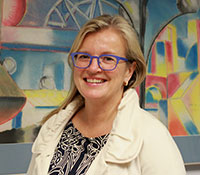 | “ALS is not a disease for quitters. Until we find something that changes this disease, we can’t stop and we can’t quit. We’re not looking for the home-run. We’re looking for therapies that will turn this into a chronic disease so that people can live a full, rich, normal life.”– Dr. Angela Genge, director of the ALS Clinical Research program and Clinical Research Unit at The Neuro. | |
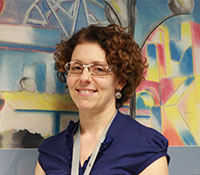 | “We follow patients over time and really get a sense of who they are and what’s important to them and to their family. Part of my role is to assist patients and families in maintaining a quality of life that they define within the context of this devastating disease.”— Toni Vitale, clinical nurse specialist. | |
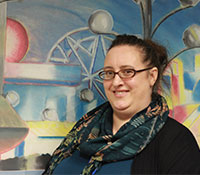 | “Patients deal with loss and grief issues immediately after a diagnosis of ALS. Being able to grieve is part of part of the 'healing' process. This grief, which is often bracketed by hope, helps patients and families cope and avoid getting stuck in a place of despair.” – Lana McGeary, spiritual care counsellor. | |
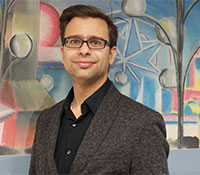 | “As physicians, we confirm the diagnosis, address the patient’s needs, prescribe medications and discuss major decisions about their illness. We also see if they are eligible for research trials that can help them and the ALS community at large.” – Rami Massie, neurologist. | |
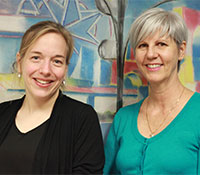 | “To bring a patient through the journey of ALS it takes a village. It’s not just The Neuro and CLSC or the rehabilitation centres. It’s all of us working together to offer patients the best quality of life as possible.” – Kendra Berry, occupational therapist. “Keeping patients as independent as possible, but safely, is our main concern.”– Marie France Lanoie, physiotherapist. | |
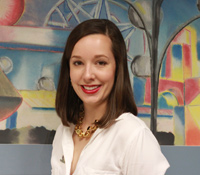 | “Clinical trials offer our patients hope and makes them feel like they’re contributing something, if not for themselves, for future generations of ALS patients. They have the opportunity to engage with other patients involved in the research, and that gives them common ground in a disease that’s so different from patient to patient.” – Kristina Salmon, clinical research coordinator. | |
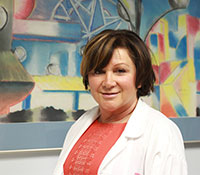 | “Part of my role is to assess how well patients breathe, how well they are sleeping, if they are experiencing any pain and to monitor their weight. Patients are faced with making life-changing decisions as the disease progresses, and as a team we accompany them in this process.” – Dolores Bertone, respiratory therapist. | |
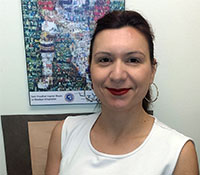 | I’m the front person and “customer service representative” of the ALS Clinic. I make sure patients’ questions, concerns and needs are answered quickly and I explain to new patients the role of each member of the ALS team and how the clinic runs. I also comfort our patients and families when needed and offer them a shoulder to cry on when wanted—most of the time I cry with them. I love what I do and I love the people around me. My team is the best in the world, and our patients are wonderful people; they teach me to be a better person. – Ritsa Argyriou, ALS Clinic Coordinator and Dr. Angela Genge's administrative assistant. | |
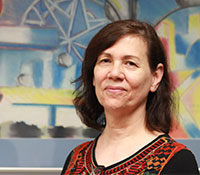 | “We accompany our patients throughout the course of this devastating illness, and try to help them achieve and maintain the quality of life they define for themselves. Working with our patients and their families has a profound effect on each of us. “ – Mia Lanno, social worker and clinical coordinator of the Social Work team at The Neuro. |
